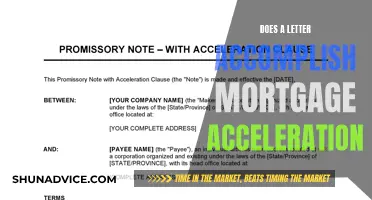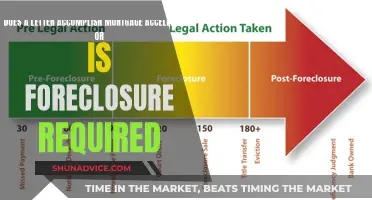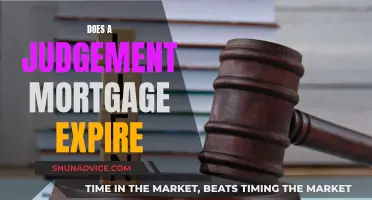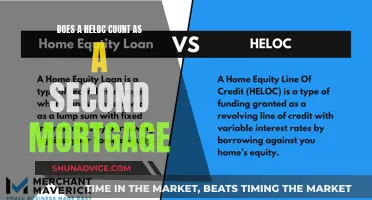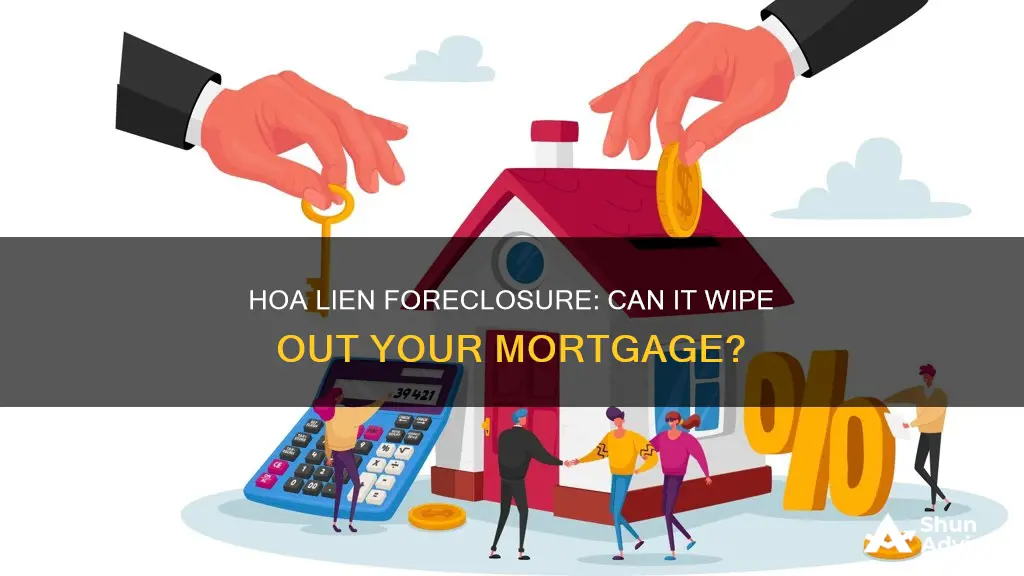
Homeowners' Association (HOA) fees are a monthly or periodic payment for the maintenance of the community, such as security, repairs, and landscaping. Failure to pay these fees can result in a lien, which may eventually lead to foreclosure. HOA foreclosure can occur even if the home has a mortgage, and it can have significant consequences for the homeowner, including a damaged credit score and the loss of their home. However, the impact of an HOA foreclosure on an existing mortgage is complex and depends on various factors, such as state laws, the type of foreclosure, and the priority of liens. While a first-mortgage lien usually remains after an HOA foreclosure, junior liens, such as a second mortgage, are typically extinguished. Nevertheless, the borrower remains liable for the debt, and the HOA may choose to let a mortgage holder foreclose and sell the property to a new owner.
Does an HOA lien foreclosure wipe out a mortgage?
| Characteristics | Values |
|---|---|
| HOA foreclosure | An HOA can foreclose on a property even if it has a mortgage. |
| HOA foreclosure process | HOA can foreclose either through a judicial or non-judicial foreclosure, depending on state law and CC&Rs. |
| Judicial foreclosure | The HOA must file a lawsuit against the homeowner and obtain a judgment from the court granting permission to sell the home to satisfy the HOA's lien. |
| Non-judicial foreclosure | The HOA doesn't have to go through state court but follows specific procedures required by state law and CC&Rs. |
| First mortgage lien | The first mortgage lien usually remains on the property following an HOA foreclosure. |
| HOA super liens | The HOA is not obligated to pay the first mortgage holder if it gains ownership through foreclosure, but the borrower remains liable for the debt. |
| Junior liens | A foreclosure by a senior lienholder, such as a first mortgage, wipes out any junior liens, such as a second mortgage. |
| State laws and regulations | State laws and regulations vary regarding HOA foreclosures, redemption rights, and the priority of HOA liens. |
| Credit score impact | An HOA foreclosure can significantly damage the homeowner's credit score, affecting their ability to obtain loans in the future. |
| HOA collection options | After a mortgage foreclosure, HOAs may write off the debt, negotiate with owners, or pursue legal action to collect unpaid fees. |
What You'll Learn

HOA foreclosure process
The HOA foreclosure process can be complex and time-consuming, and it should be a last resort for community associations. It is typically triggered when a homeowner fails to pay their fees and assessments. Before initiating foreclosure proceedings, the HOA should review all records and ensure that assessments and other fees were appropriately levied to avoid potential lawsuits from the homeowner.
Once it is established that the homeowner is delinquent in their payments, the HOA can start the process of placing a lien and eventually foreclosing on the property. The HOA must serve notice of the lien to the homeowner, giving them a chance to repay the past dues. The lien notice must include a legal description of the property, the name of the owners, and the total amount due, including any reasonable fines and lawyer fees. The HOA must then record the notice of the lien with the office of the register of deeds in the county where the community is located. The office will serve the notice to the homeowner by first-class mail within at least ten days of the intended foreclosure date.
If the homeowner still refuses to pay, the HOA has the right to proceed with the foreclosure sale and even bid on the home. However, the HOA must be cautious as a wrongful foreclosure could result in additional problems, including the requirement to pay damages to the property owner. Even if the HOA follows the correct process, there is no guarantee that the property owner won't file a lawsuit after the fact.
It is important to note that the HOA's governing documents and state laws play a significant role in the foreclosure process. Some states impose due process requirements, and the HOA should ensure that it has the right to foreclose and is following the correct procedures as outlined in the CC&Rs (Covenants, Conditions, and Restrictions). The HOA can choose between judicial foreclosure, which involves going to court, and non-judicial foreclosure, but this depends on what is permitted by the CC&Rs and state law.
Federal Liens: Superior to Mortgages in New York State?
You may want to see also

Liens and their removal
A lien is a legal claim by a creditor against a property, which gives them the right to seize and sell the property to pay off the unpaid debt. Liens can be voluntary or involuntary. The former is created by the homeowner, such as when they take out a mortgage to buy the property. The latter is placed on the property by an outside party, such as a judgment lien issued by a court or a federal tax lien placed by the IRS.
A homeowner's association (HOA) lien is a type of involuntary lien. HOAs collect fees and assessments from homeowners for the maintenance of the community, such as security, repairs, and landscaping. Failure to pay these fees and assessments can result in an HOA lien, which might eventually lead to a foreclosure.
If you are facing an HOA foreclosure, it is important to note that, in most cases, the HOA can foreclose if you default on assessments, similar to how a lender would foreclose on a defaulted mortgage. The HOA can choose to either go through a judicial or non-judicial foreclosure process, depending on state law and the Covenants, Conditions, and Restrictions (CC&Rs) that govern the community.
- Pay off the lien: This is often the simplest method. Paying off the debt in full will allow the property to be sold without any encumbrances. You may be able to negotiate with the creditor for a reduced settlement amount, depending on the circumstances.
- Request a Release-of-Lien Form: After paying off the debt, the creditor is required to issue a release-of-lien form, which serves as proof that the debt has been satisfied and the lien has been removed.
- Wait for the Statute of Limitations to Expire: In some states, judgment liens have a time limit. For example, in Michigan, a judgment lien expires five years after it is recorded. Removing the lien this way will not eliminate the debt, but it will allow the property to be sold.
- Negotiate with the Creditor: It may be possible to resolve the lien without full payment through arbitration, mediation, or informal negotiations.
- File for Bankruptcy: While this will likely wipe out your responsibility to pay a secured debt, you will not be able to keep the collateral (the property) unless you pay what you owe.
- Obtain a Court Order: If you believe the lien was obtained through fraudulent or illegal means, you can file a motion in court to have it removed. This requires clear evidence, and the court must agree that the lien is invalid.
Cosigner Impact: Can You Get a Higher Mortgage?
You may want to see also

HOA foreclosure and credit score
An HOA foreclosure will likely hurt your credit score, which can affect your ability to get a loan in the future. A foreclosure can remain on your credit report for seven years, but your FICO score can start to recover in as little as two years if you stay current with your other debts. The number of points your score will drop depends on your credit score before the foreclosure. The higher your credit score, the more points you will lose. For example, according to FICO, if your credit score was 680 before the foreclosure, your score will likely be between 575 and 595 after the foreclosure, a drop of 85 to 105 points. On the other hand, if your credit score was 780 before the foreclosure, your score will drop to between 620 and 640, a decline of 140 to 160 points.
Even if the HOA doesn't report delinquent payments to the credit bureaus, an HOA foreclosure will likely show up in your credit history. HOA foreclosures are either judicial or non-judicial. Judicial foreclosures go through the courts, and court filings are part of the public record. Credit bureaus can find out about the foreclosure from these public records and add this information to your credit report. Non-judicial foreclosures do not involve court oversight, but they often involve recording a notice in the land records, which are also public records that credit bureaus can access.
If you are facing a potential HOA foreclosure, you may be able to request a pre-foreclosure meeting to discuss a resolution to the problem. At this meeting, you could negotiate a payment plan to pay off your fees or fines in exchange for the HOA's agreement to hold off on foreclosure. Additionally, some states require a minimum amount of debt before the HOA can foreclose or a minimum amount of time for the homeowner to catch up on payments. If you live in a state that provides a right of redemption after the foreclosure sale, you may be able to repurchase your property.
HELOCs: Mortgage, Note, and You
You may want to see also

HOA foreclosure and mortgage priority
If a homeowner fails to pay their HOA fees and assessments, the HOA can initiate foreclosure proceedings. This is known as an HOA foreclosure and it can have implications for any existing mortgages on the property.
In most cases, the HOA's Covenants, Conditions, and Restrictions (CC&Rs) and state law allow the HOA to foreclose on a property even if it has a mortgage. The HOA can choose to foreclose either through a judicial or non-judicial process, depending on the specific circumstances and state regulations.
Following an HOA foreclosure, the first mortgage lien typically remains on the property. This means that the homeowner is still obligated to pay the debt to the first mortgage holder, even if the HOA gains ownership of the property. The HOA has the option to pay the first mortgage holder to prevent foreclosure, but it is not required to do so. In some cases, the HOA may allow the mortgage holder to foreclose and sell the property to a new owner, who will then be responsible for paying HOA fees and assessments.
However, it's important to note that any liens junior to the HOA's lien, such as a second mortgage, are usually extinguished during an HOA foreclosure. This means that the second mortgage holder may need to sue the borrower to collect the debt. Additionally, the borrower's credit score may be significantly impacted by the HOA foreclosure, affecting their ability to obtain loans in the future.
It's worth mentioning that some states have implemented super-lien laws, which give HOA assessment liens priority over even a first mortgage. In these cases, an HOA foreclosure can eliminate the first mortgage lender's property rights. As a result, first mortgage lenders in these states often choose to pay off delinquent HOA assessments to protect their interests.
Fannie Mae Mortgage Note: Grace Period Explained
You may want to see also

HOA foreclosure and state laws
HOA foreclosure laws vary from state to state in the US. Some states allow a homeowner to redeem their home after a foreclosure, while others do not. For example, in California, if the HOA forecloses using a nonjudicial foreclosure process, the homeowner has a 90-day right of redemption. During this period, the homeowner can get their property back by paying the amount of the lien, plus costs, fees, and other allowable charges. In Texas, an HOA may foreclose its assessments lien nonjudicially if the governing documents expressly authorise it and if the HOA first obtains authorisation from the court for an expedited foreclosure, unless the owner waives the expedited process.
State laws often place particular due process requirements on HOAs regarding how and when they can foreclose an assessments lien. For example, in California, the delinquent assessments must equal or exceed $1,800, or the delinquency must be at least 12 months old before the HOA can initiate foreclosure proceedings. In Florida, an HOA cannot initiate a foreclosure until 45 days after providing the homeowner with a notice of intent to foreclose. In some states, an HOA must use a judicial process to foreclose, while in others, the association may use either a judicial or nonjudicial foreclosure.
It is important to note that an HOA foreclosure can negatively affect a homeowner's credit score, making it difficult to obtain a loan in the future. Additionally, the homeowner may remain responsible for the debt even if a lien is removed from the property, as the personal obligation to pay the debt stays with the borrower.
HELOC and Second Mortgage: What's the Difference?
You may want to see also
Frequently asked questions
A lien is a legal claim against a property that is used as security for a debt. An HOA lien is a legal claim against a homeowner's property by the homeowners' association for unpaid fees or assessments.
Yes, an HOA can foreclose on a property with a mortgage. The HOA can choose either a judicial or non-judicial foreclosure, depending on state law and the CC&Rs (Covenants, Conditions, and Restrictions).
No, a first-mortgage lien will usually remain on the property following an HOA foreclosure. However, if the HOA has a super-lien, it may be able to eliminate the first mortgage.
A second mortgage is considered a junior lien and will be extinguished by an HOA foreclosure. However, the borrower remains liable for the debt and may face lawsuits from the second mortgage holder.


